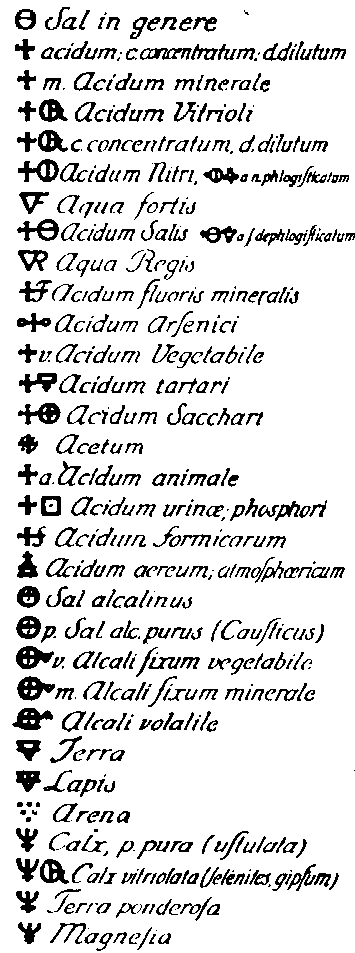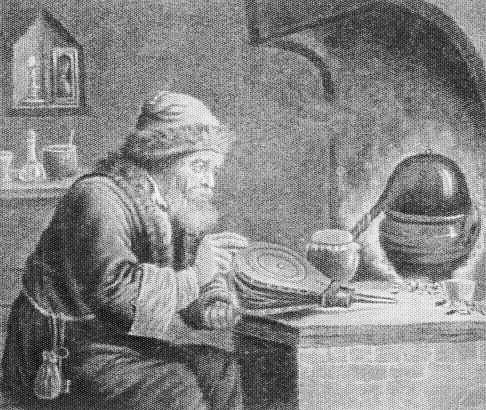 |
 |
 |
 |

Like the word alchemy itself, derived from the Arabic al-kimiya', the study came to Europe from Arabia, although there are records of similar chemical endeavors in nearly every ancient civilization, including Greece, Egypt, and China. The Greek background proved important in alchemy's medieval revival in Europe. Often called Hermetic philosophy after its legendary founder, Hermes Trismegistus, alchemy combined a mystical philosophy with empirical research into the reactions of various substances. The most famous objective of the alchemists throughout their long history is the transmutation of the "base metals," especially lead, into the "noble metals," especially gold. It is not surprising that the passion for gold attracted con artists and mountebanks such as are depicted in Ben Jonson's The Alchemist (performed 1610, printed 1612), in which alchemy is merely an excuse to swindle the credulous. According to various reports, Frederick of Wurzburg kept a special gallows for hanging alchemists.
 But alchemy is more than mystical metallurgy and charlatan
counterfeiting. Another central concern was the discovery or
creation of the elixir of life or the philosopher's
stone (see Frankenstein 1.1.8), capable of prolonging
life indefinitely -- or even "bestowing animation upon lifeless
matter," as Frankenstein achieves in 1.3.4. More than this, though,
alchemy was a systematic mystical philosophy integrating
astrology, numerology, and even theology into the study of
matter. To the alchemists, physical matter was an expression of
underlying essences and principles. The reactions of various
substances, then, could be explained as the attraction of the
male and female principles inherent in them. Gold, the perfect
metal, represented to the alchemists the perfect balance of the
four elements (earth, air, fire, and water), and the perfect
balance of the male and female principles in them.
But alchemy is more than mystical metallurgy and charlatan
counterfeiting. Another central concern was the discovery or
creation of the elixir of life or the philosopher's
stone (see Frankenstein 1.1.8), capable of prolonging
life indefinitely -- or even "bestowing animation upon lifeless
matter," as Frankenstein achieves in 1.3.4. More than this, though,
alchemy was a systematic mystical philosophy integrating
astrology, numerology, and even theology into the study of
matter. To the alchemists, physical matter was an expression of
underlying essences and principles. The reactions of various
substances, then, could be explained as the attraction of the
male and female principles inherent in them. Gold, the perfect
metal, represented to the alchemists the perfect balance of the
four elements (earth, air, fire, and water), and the perfect
balance of the male and female principles in them.
Although many alchemists were either naïve dabblers or simple frauds, some of their work was indispensable in the development of modern chemistry. Alchemists discovered gunpowder (attributed to Roger Bacon) and many of the basic techniques of metallurgy and pharmacology. Paracelsus was the first to discover and describe zinc.
Victor Frankenstein lists several prominent alchemists among his boyhood reading material in 1.1.6 and 1.1.7, Cornelius Agrippa, Paracelsus, and Albertus Magnus. The dismissals by Victor's father (1.1.6) and Professor Krempe (1.2.7) serve to point up the distance the late eighteenth century saw between these mystics and the modern experimental chemistry as practiced by such scientists as Boyle, Priestley, and Davy.